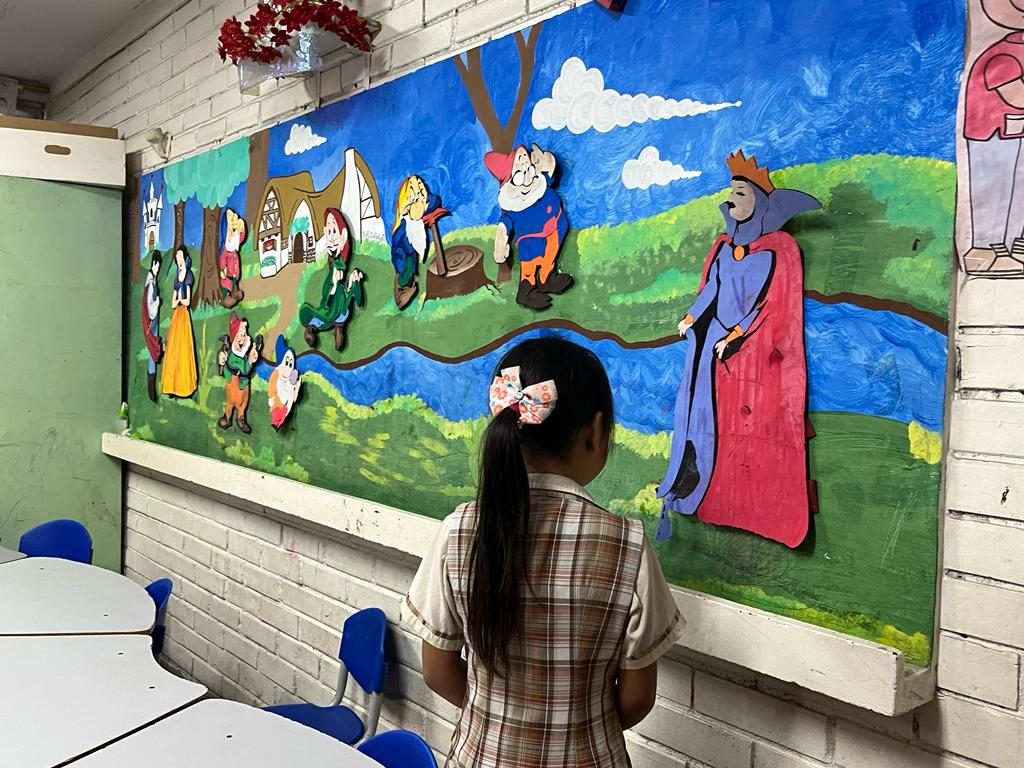What would make the European Humanitarian Forum a success?
20 March 2023
A 'refugee/migrant' child from Venezuela getting ready for her school in Colombia. Education is one of the least funded in humanitarian settings. Photo: Plan International/Unni Krishnan.
The European Humanitarian Forum (20-21 March) is taking place at a historic moment when there are record number of people who require humanitarian assistance and protection. The event is an opportunity to reaffirm our commitment to universal human values like compassion and the humanitarian principles. It is equally an occasion to hold a mirror and reflect on our ways of working.
But how will we know whether the forum has been a success?
I share below three topics that I think are key and, if sufficiently addressed, would make the Forum a success in my eyes.
Prioritising the hunger crisis
The world is currently experiencing the worst hunger crisis in decades. Armed conflicts and wars, economic fallouts of the COVID-19 pandemic at the household level and on small businesses, and climate break down are all amplifying the hunger crisis.
In early March, I was in Burao in Somaliland, Somalia. Rains failed in some parts of the country for the past five consecutive years. There I met a young mother. She and her six children were tired, hungry and have run out of money and food. She had a pot with a tight lid set on a makeshift oven. She said that she gives little breakfast to her children and promises them a big meal in the evening. By five in the evening, all children are ready and hungry to eat the big meal they have been dreaming the entire day. The mother keeps telling them that the meal is being cooked. But it never gets ready. Children wait, and finally each one of them starts falling asleep. When the last child falls asleep, she opens the pot and throws away the water in it– there has never been any food in the pot, just the water.
Mothers in hunger zones make hard choices – choose which child to feed or whether to feed the livestock or children. Girls often come last. Today (every day) 690 million people go to bed on an empty stomach. New-born children, girls and pregnant women are hit hard and are at heightened risk. That is why the work initiated under the leadership of Reena Ghelani, the UN Secretary General’s Famine Prevention and Response Coordinator, is critical.
The occasion of the European Humanitarian Forum is a great opportunity to see commitments and the prioritisation for age- and gender-responsive interventions, share best practices on multi-purpose cash and vouchers and re-confirm support for locally led responses where possible.
We know all refugees are equal. We need to ensure our actions showcase this at all times.
All refugees are equal
The last 12 months have witnessed unprecedented levels of human suffering in Ukraine. The conflict added a record number of another 8 million new refugees. I spent a good portion of 2022 at the border towns and relief settings in Moldova, Romania, Poland and inside Ukraine. No words can capture the suffering.
Humanitarian needs inside Ukraine and support to those who have become refugees need to be scaled up, and so do calls for long term commitment to put communities back on their feet. However, there is growing criticism that some refugees from other contexts are not receiving sufficient attention.
There are more than 7 million people from Venezuela who now live as refugees, migrants and asylum seekers in neighbouring countries. Whether amongst Venezuelan refugees in Colombia, Peru and Ecuador or amongst Rohingya refugees in Bangladesh, limited resources are amplifying human suffering.
We know all refugees are equal. We need to ensure our actions showcase this at all times.
We need to make sure no one is excluded from our responses. We also need to understand how crises impact on different people differently and how their intersecting identities might be further marginalised in an already fragile context. What are the experiences -and needs- of young women, LGBTQI+ children or adolescents? It is our responsibility to have clarity and to make sure that no one is left behind in relief efforts.
The European Humanitarian Forum would be a great opportunity for commitments on education and protection services for refugee children, programme elements that are traditionally not donor priorities.
Concrete advancements on local action
The big idea of enabling local volunteers and empowering local agencies to take charge of relief and recovery efforts has been a discussion topic for a long time. However, one could argue that not much progress has been made to translate slogans into actions.
The future of the aid sector will be defined to a great extent by the ability, power and resources that local volunteers and agencies can galvanise and the decisions they can take about actions that impact communities they live in. They are the first responders. Sometimes they are the only responders. The European Humanitarian Forum would be a great space to debate, learn and perhaps disagree with EU institutions, governments, donors and peers, on what the short-term future of localisation looks like concretely.
With a record number of 339 million people in need of humanitarian assistance this year alone, it is necessary and possible to do more for disaster survivors and refugees. More than ever before, human stories of suffering, survival and resilience remind the world to be more compassionate and generous.
Categories: Emergencies



